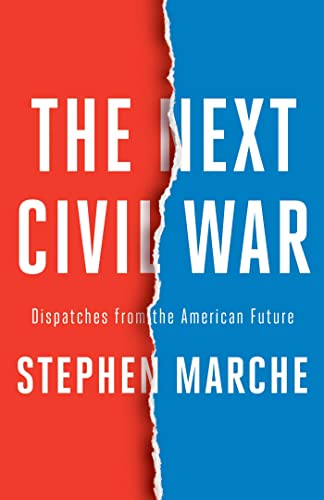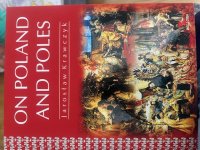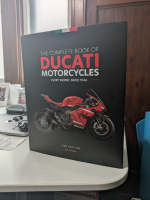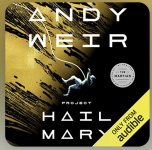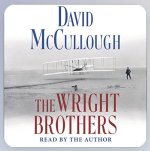Party with many of the club back in the day, good times at the old EastwoodI was a kid with extended Smith's Falls family in the Choice; they let us hang around and no harm would ever come to us or there'd be war. And I was there as a kid in Prince Edward County when they went to Mercer's house in limousines and signed over their patches to the Hell's Angels (not sure if it was the after-party or the actual deed I interrupted). I had no idea what was going on, just that I wasn't allowed to play with his son that day and there were all these rough looking dudes in suits. Then (30+) years later I read about it the patching over in a long, treed lane in PEC in a book about Mom Boucher and realised that's what I was looking at as a kid... which perfectly described the Mercer's driveway.
FYI I always did wonder why they let the pool go completely green and there was a monster stereo system in that house with virtually no furniture in the two living rooms it had (big house down on Glenora Road). I guess maybe I'm more clued in now as to what might have been going on there ... I also wonder what might have been up in the attic when they blew a whole lot of that mulched newspaper into the ceiling of what should have been a house that already had good insulation... but maybe I'm just being paranoid about that.
Small world.
You are using an out of date browser. It may not display this or other websites correctly.
You should upgrade or use an alternative browser.
You should upgrade or use an alternative browser.
What are you reading?
- Thread starter klr_guy
- Start date
Good luck, I tapped out after 1.

I am listening to this
Damn what a vocabulary
Seven Pillars of Wisdom is the autobiographical account of T.E. Lawrence - also known as 'Lawrence of Arabia' - of his service in the Arab Revolt during the First World War, published in Penguin Modern Classics.
Although 'continually and bitterly ashamed' that the Arabs had risen in revolt against the Turks as a result of fraudulent British promises of self-rule, Lawrence led them in a triumphant campaign which revolutionized the art of war. Seven Pillars of Wisdom recreates epic events with extraordinary vividness. In the words of E. M. Forster, 'Round this tent-pole of a military chronicle, Lawrence has hung an unexampled fabric of portraits, descriptions, philosophies, emotions, adventures, dreams'. However flawed, T.E. Lawrence is one of the twentieth century's most fascinating figures. This is the greatest monument to his character and achievements, and formed the basis for the Oscar-winning film Lawrence of Arabia, staring Peter O'Toole and Alec Guinness.
This edition includes maps, drawings by Eric Kennington, and index of place names and a preface by A.W. Lawrence.
Thomas Edward Lawrence (1888-1935) was born in Wales and educated at Jesus and Magdalen Colleges, Oxford. He was commissioned on the outbreak of the First World War and in 1917 was officially attached to the staff of the Hejaz expeditionary force, under General Wingate. After the war, Lawrence was Advisor on Arab Affairs in the Middle Eastern Division of the Colonial Office. In 1927, embarrassed with the 'Lawrence of Arabia' legend, he changed his name by deed poll to Shaw'. In addition to this book, of which Lawrence lost almost the whole manuscript at Reading station in 1919, he wrote Revolt in the Desert (1927) and The Odyssey of Homer (1935), a translation in prose.
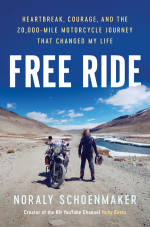
Not the worst way to spend a rainy winter day. So many good laughs and good people.
I turned out to be the very first person to attempt to import a motorcycle through the airport, and the option “motorcycle” didn’t exist in their system. One of the officials showed me his computer screen; I could import horses of all colors—gray, black, white, brown. But a checkbox for “motorcycle” was nowhere to be found. The computer said no.
When I came back from the airport for the second time, again disappointed and empty-handed, I almost knocked into the hotel owner as I walked in. I had chatted with him a couple of times before, and he had immediately given me a free upgrade to a luxury suite when I told him that my bike had been delayed by two weeks. He was a beautiful man, and he always looked well-groomed and stylish. He wore nizwas (handmade) leather sandals and a dishdasha (a long, loose white garment) that reached down to his ankles. These were made of lightweight cotton, ideal for Oman’s hot desert climate. His dishdasha was decorated with subtle embroidery around the collar.
“And?” he asked, smiling.
I shook my head and sighed. “No. The computer system can’t import a motorcycle, even though I keep trying to explain that this is a temporary import, not a permanent one. I didn’t get anywhere, and I’m not quite sure what else I can do.”
He listened politely and then shook his head as if to say: What a load of nonsense. He whipped out his phone, dialed a number, and started speaking in rapid Arabic, occasionally looking over at me reassuringly. I waited politely, not expecting his phone call to be of any help.
That was until he hung up his phone and said to me in English: “I own the airport.”
Of course. “Ah,” I managed to say.
Last edited:
This book was written by a guy who huddled in a safe room with his wife and kids while Hamas ransacked the kibbutz on Oct 7.

 www.theguardian.com
www.theguardian.com

The Gates of Gaza by Amir Tibon review – a survivor’s account of 7 October
Tibon, an eyewitness to mass-murder in Kibbutz Nahal Oz, uses the day as a lens through which to view recent Israeli history
Free Ride... for all her wealth and fame now ...Noraly's earlier adventures were anything but smooth going....poorly thought out and maybe lucky she survived. She can certainly write.....very engaging, funny and to much less degree I've been there on rides I should not have been on.
Snip
Snip
The border with Kyrgyzstan was on top of those mountains, on the Kyzyl-Art Pass. It wasn’t long before I noticed the road was starting to climb. The asphalt ended and the road continued unpaved. Soon, I was crossing small frozen streams of water. I could hear the ice crack as my tires broke through. The thin gloves I’d bought on the Chinese market in Murghab and that I used as extra layer under my motorcycle gloves again didn’t help much. My hands were soon hurting just as badly as they had the day before, and then they went numb again. I didn’t understand how it could be this sunny while it was so terribly cold at the same time.
I realized that, yet again, I had made a terrible mistake. I couldn’t quite understand: Why was I so unteachable? Was it just a matter of my over-optimism? I had once again allowed myself to be thrown off by focusing only on travel distance. Thirty miles hadn’t seemed like much. Usually I could cover that kind of distance in thirty minutes. But here, on an unpaved Pamir, a road covered in rocks and snow, I barely moved at ten miles an hour. At this pace, I would have to brave the cold for two and a half hours. The icy wind made my breath stick awkwardly in my throat. Even though I had already mastered the even higher Ak-Baital Pass, I once again struggled with a lack of oxygen. I gasped and panted for breath that never came. My teeth were chattering so hard that it wouldn’t have surprised me if the guards at the border could hear me coming already. My numbness had made it so hard to keep the throttle open that I involuntarily closed it every now and then, only to reopen it all the way with a jerk. From a distance, it must have looked like it was my first time on a motorcycle. Suddenly I no longer felt like the badass Pamir adventurer of that morning.
Eventually I reached the border, chilled to the bone. This was the border post of Tajikistan, and I saw a collection of small, white buildings. I stopped Basanti in front of the lowered barrier, right next to a car with luggage piled high on its roof. I awkwardly hopped on my left foot as I pulled my right leg over the seat and got off. I was completely out of breath. Like any other border crossing, some guy approached me and led me to one of the buildings. I stepped inside and was greeted by a border guard. He was wearing blue camo pants, army boots, and a short-sleeved T-shirt. A short-sleeved T-shirt!
“Cold?” he asked in English. My hands and feet hurt so much that all I could do was grunt, but because I could barely breathe, I wasn’t able to say anything at all. “Your shoes,” he said, pointing at them. He wasn’t too stoked about my muddy motorcycle boots in his office. My frenzied gaze went to my boots and back to him, and he knew enough.
“Go on, go on,” he said, having switched to Russian. Davai davai. He pointed at a small wooden bench for me to sit on. There was no way my numb hands would be able to take off my gloves, let alone my boots. While I tried to catch my breath and stop panting, the border guard carefully pulled off my double layer of gloves and then my boots. I carefully peeled my socks off the frozen stumps that only this morning had still been feet. There was a woodstove in the corner of the office, and the border guard placed my boots as close to it as possible.
Next, he focused his attention on my blood-drained hands. He said something to his colleague, who had joined us in the office, and shot another concerned look at my numb fingers. He briefly disappeared outside and returned with a bowl of lukewarm water. He gestured for me to put my fingers in it and said: “Frost.” Was he worried about frostbite? I always thought your fingers had to be black to be talking about frostbite, but I trusted the Tajik’s knowledge more than my own. While I laid my fingers in the bowl of lukewarm water, another man placed a tall glass of steaming tea in front of me and an extra pair of socks on the bench next to me. Delighted, I looked at the thick woolen socks. They were brand-new. He mumbled something and I thanked him three times or more. For an hour that’s how I sat there—with my feet next to the woodstove, drinking hot tea, and slowly feeling my body temperature get back to normal. I was at a loss for words at the kindness of these people. When I’d warmed up enough to carry on, I put on my new woolen socks and stepped back into my boots. The border guard with the blue camo pants stamped my passport and collected Basanti’s temporary import papers. I was free to leave Tajikistan
Unreal....highly recommended
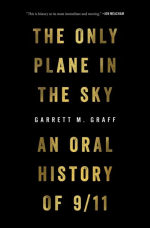
Completely mesmerizing as it reels off eyewitness survivors inside the towers personal accounts....
snip - the first plane had just hit....

Completely mesmerizing as it reels off eyewitness survivors inside the towers personal accounts....
snip - the first plane had just hit....
Vanessa Lawrence: When the blast hit, the first thing that came into my head was, Did I leave my tote by an electrical socket? It was that horrible thing, Oh, my God! How am I going to explain this? Even going down the stairs, it was still, Was this me? What if this is my fault?
Anthony R. Whitaker, World Trade Center (WTC) commander, PAPD, North Tower ground-level lobby: I saw two people out of the corner of my left eye. They were on fire. They ran toward me, and then they ran right past me. They issued no sound. All their clothes were burnt off, and they were smoldering.
David Kravette: One of the girls who worked with me, Lauren Manning, was coming into the lobby when that fireball came down, and it took her through the glass. She was burned over 80 percent of her body and survived. If I was 20 yards further along in my walk, I would be dead or severely burned. There was no fire afterwards. It literally exploded out, burned itself out, and disappeared within seconds. It was three, four, five seconds at most.
Harry Waizer: The elevator started to fall. It burst into flames. I had a briefcase, a cloth briefcase, in my hand, and I was using it to try to beat out the flames. I was burned on my legs and on my arms. The elevator initially was plummeting, then an emergency system kicked in, because it started gliding. As it was going, I got hit in the face by a fireball that came in through the gap between the elevator doors and the body of the elevator. I have this impression of this orange ball coming at my face and a sensation—I can’t call it a burning—of it making contact and then it was gone.
Hard not to get teary eyed at some of the voice mails transcribed from people on the hijacked planes and reactions in general to what was happening. Very comprehensive. The pace of the quoted conversations and recollections are just relentless, from Dick Cheney down to the smallest page at Congress trying to figure out where to park the giant flag container she was responsible for that day ....running down the Mall with them.
Particularly moving were the calls coming from Flight 93 - they had cell contact and were sometimes conversing with loved ones.
Pretty brave the bunch that forced that crash.
Last edited:
While reading the book above I found it very offensive to learn that Netanyahu assisted Qatar in funneling many millions into hamas. As long as Gaza was run by terrorists he would never have to negotiate with them.
Netanyahu is a war criminal and isreal is an aparthied state. What an effing shamble.
Netanyahu is a war criminal and isreal is an aparthied state. What an effing shamble.
Listening to book 2 of The Gray Man Series. If you like Jack Carr, I'd recommend this. I see it's been made into a Netflix series, or movie.













